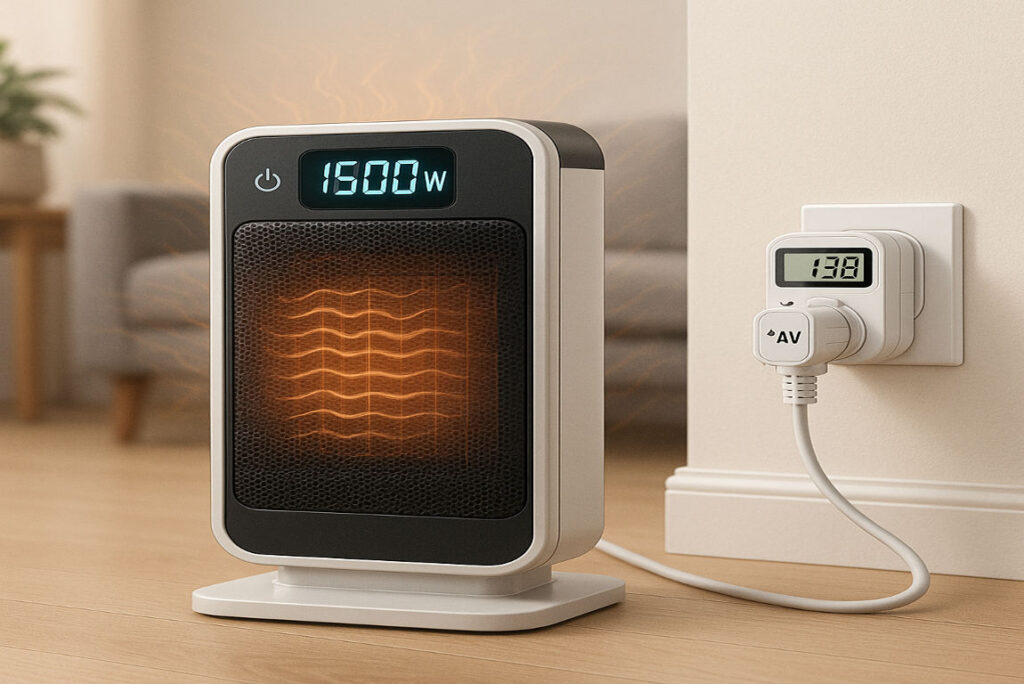Home heating is essential for comfort, especially during the colder months. Whether you live in a region with harsh winters or experience occasional chilly nights, a reliable heating system is a must. However, heating your home can significantly impact your electricity bill, making it crucial to understand how much power your heater consumes.
Understanding Heater Wattage: What Does It Mean?
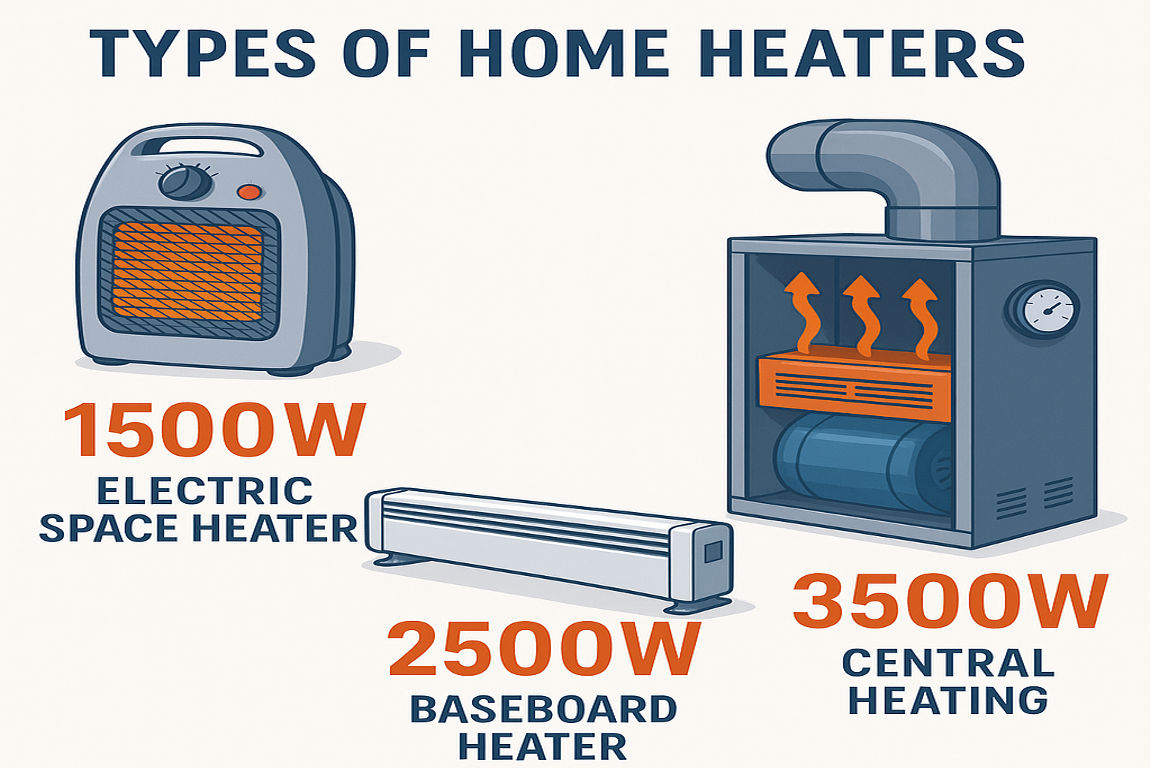
Before diving into specific wattage ranges, let’s first understand what wattage means in the context of home heaters.
What Is Wattage?
Wattage refers to the amount of power a device consumes when it’s running. For heaters, this is the rate at which they convert electrical energy into heat. For example, a 1,500-watt heater uses 1,500 watts of power per hour when operating at full capacity.
Wattage vs. Energy Consumption
It’s important to distinguish between wattage and energy consumption:
- Wattage is the instantaneous power draw of the heater.
- Energy consumption is measured in kilowatt-hours (kWh), representing the amount of power used over a specific period. For instance, a 1,500-watt heater running for 8 hours consumes 12 kWh (1.5 kW × 8 hours).
Why Wattage Matters
Understanding wattage helps you:
- Estimate electricity costs: Higher wattage means more energy consumption, which translates to higher bills.
- Choose the right heater: Knowing the wattage ensures you select a heater that matches your room size and heating needs.
- Optimize energy efficiency: By understanding the amount of power your heater consumes, you can take steps to minimize unnecessary energy waste.
Typical Wattage Ranges for Different Types of Home Heaters
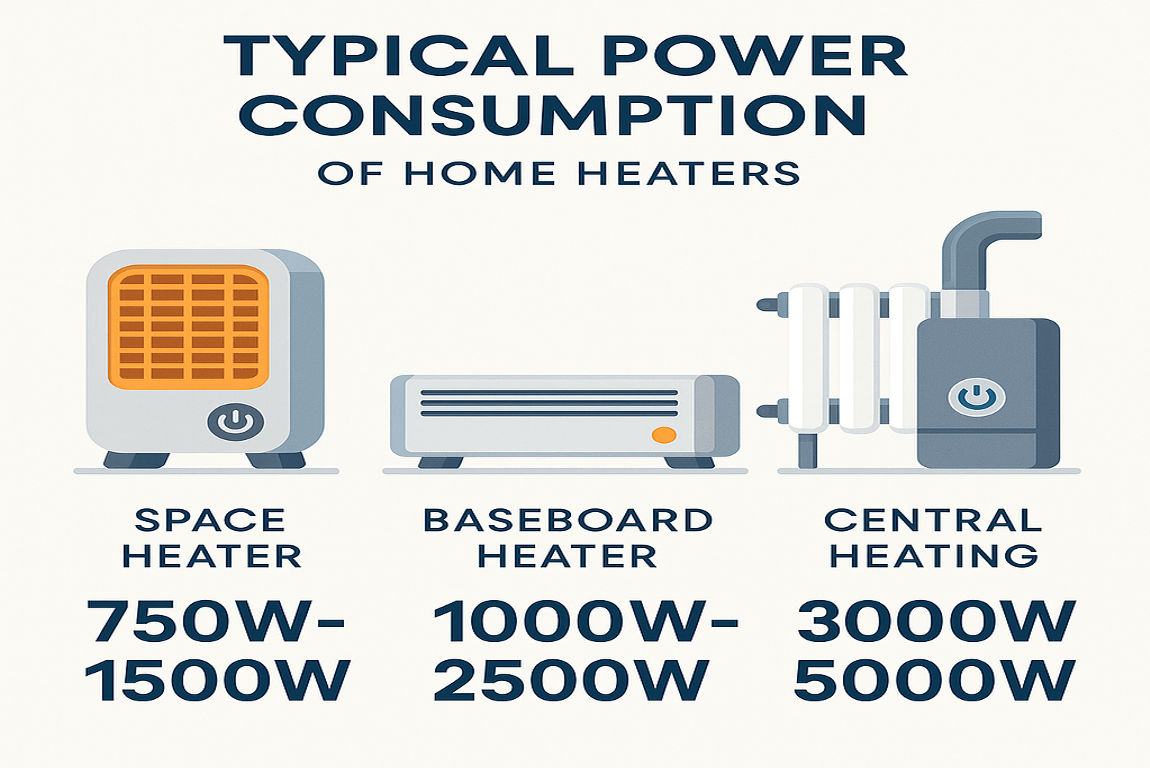
The wattage of a home heater depends on its type and size. Let’s break down the most common types of heaters and their typical power consumption.
You may also read(the financial responsibility of house inspections explained).
Electric Furnaces
Electric furnaces are robust heating systems designed to warm entire homes. Their wattage typically ranges from 10,000 to 50,000 watts (10-50 kW), with most residential units averaging around 20,000 watts.
- Cycling Behavior: Electric furnaces don’t run continuously. Instead, they cycle on and off to maintain the desired temperature. For a 20,000-watt furnace, the actual running wattage might average around 13,000 watts per hour.
- Regional Usage: Electric furnaces are more common in regions with milder winters, such as the Southeast and Southwest United States.
- Cost Implications: Assuming 2 hours of daily use, a 20,000-watt furnace would consume 40 kWh per day, which can quickly add up to your electricity bill.
Space Heaters
Space heaters are portable and designed to heat small areas. They are among the most commonly used heaters due to their convenience and affordability.
- Wattage Range: Most space heaters consume between 750 and 1,500 watts.
- Energy Consumption Examples:
- A 750-watt heater running for 8 hours uses 6 kWh of energy.
- A 1,500-watt heater running for the same duration uses 12 kWh.
- Safety Considerations: Space heaters should be used with caution to prevent overheating or fire hazards. Avoid leaving them unattended for long periods.
Other Heater Types
Here’s a quick overview of other standard heaters and their wattage:
Heater TypeTypical Wattage RangeNotes
Electric Baseboard Heaters 750 to 2,000 watts Ideal for supplemental heating in specific rooms.
Tankless Water Heaters Up to 199,000 watts Extremely high wattage but only operates when hot water is needed.
Gas-Fired Space Heaters Measured in BTUs (convertible to watts) More energy-efficient than electric heaters in some cases.
Oil-fired furnaces Measured in BTUs Common in colder climates; wattage depends on the conversion rate.
You may also read(what causes maggots to appear in my house).
Factors Affecting How Many Watts a House Heater Uses
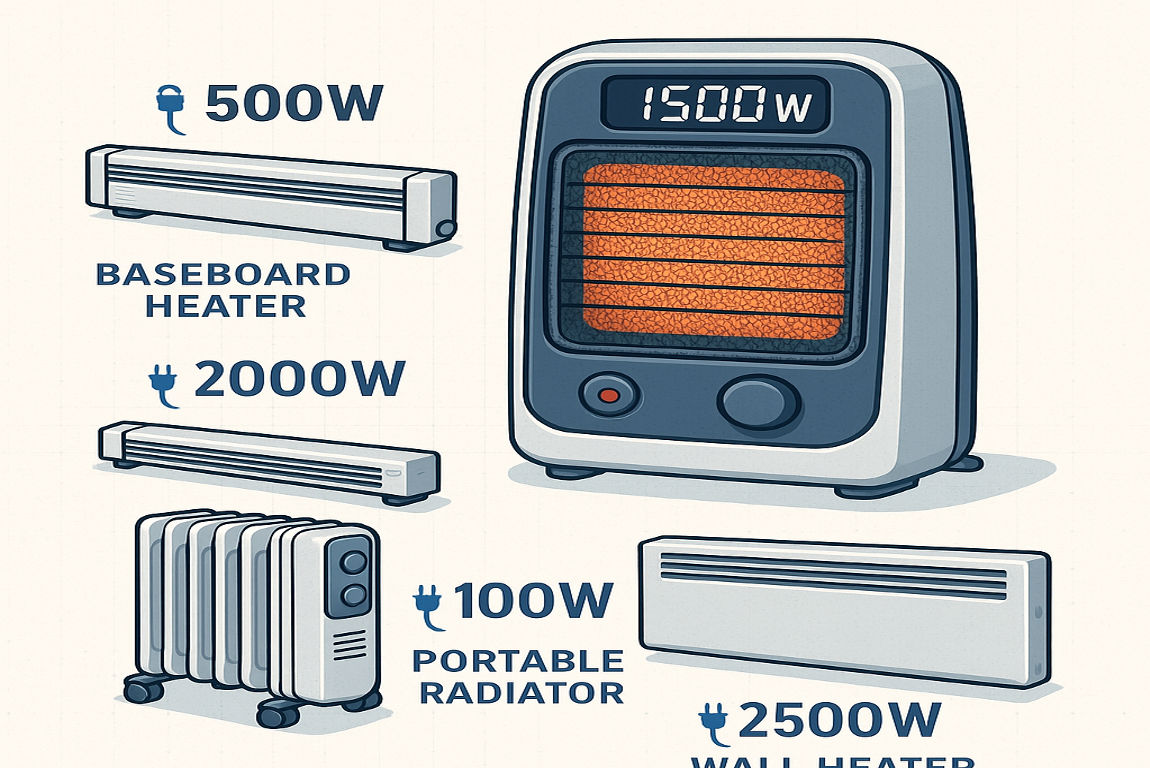
Several factors influence the power consumption of your home heater. Let’s explore these in detail.
Room Size and Insulation
The larger the room, the more watts are required to heat it. A general rule of thumb is 10 watts per square foot. For example:
- A 150-square-foot room needs a 1,500-watt heater.
- Poor insulation increases energy consumption as heat escapes more easily.
Desired Temperature and Climate
The greater the temperature difference between your home and the outdoors, the harder your heater has to work. In colder climates, heaters consume more power to maintain a comfortable indoor temperature.
Heater Efficiency
Modern heaters with energy-efficient technology can use up to 40% less power than older models. Look for heaters with high energy efficiency ratings to save on electricity costs.
Usage Patterns
How often and how long you run your heater significantly impacts energy consumption. For example:
- Running a 1,500-watt heater for 4 hours consumes 6 kWh.
- Running the same heater for 8 hours doubles the consumption to 12 kWh.
Calculating Your Home Heater’s Energy Consumption and Cost
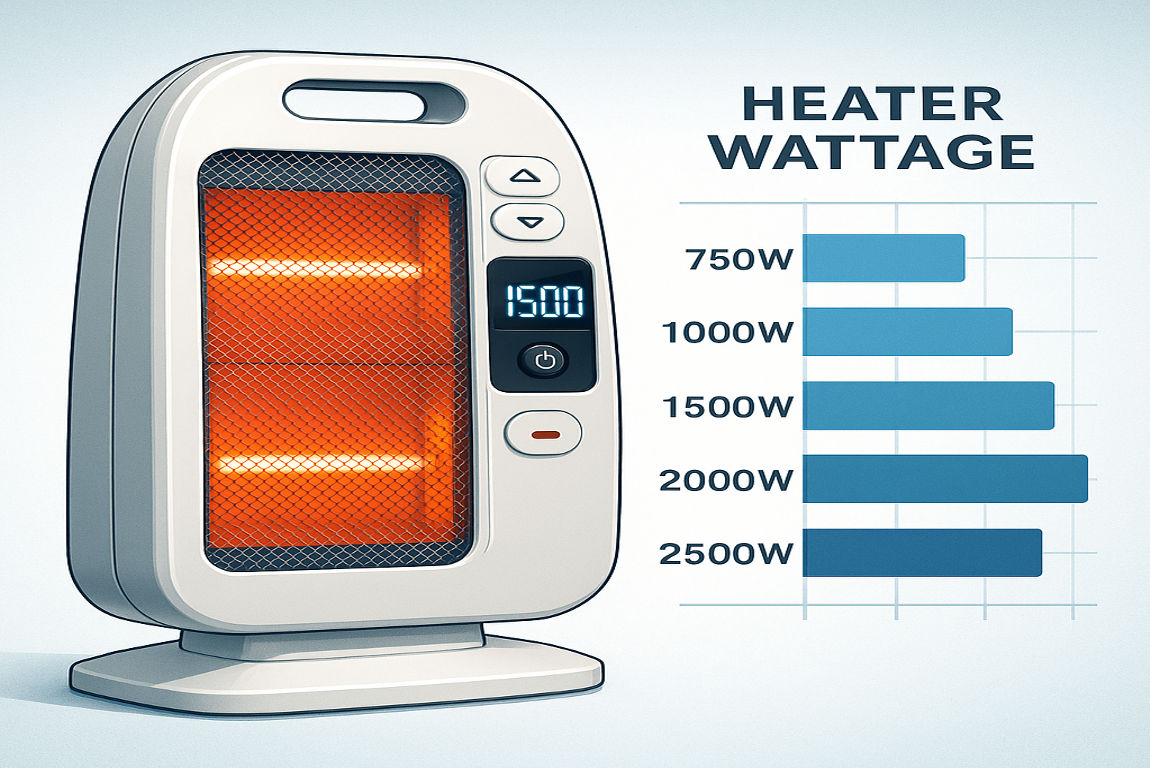
Want to know how much your heater is costing you? Here’s a simple step-by-step guide.
Determine Wattage
Check the label on your heater to find its wattage. For example, let’s use a 1,500-watt space heater.
Convert to Kilowatts
Divide the wattage by 1,000 to convert to kilowatts:
- 1,500 watts ÷ 1,000 = 1.5 kW.
Multiply by Usage Hours
Multiply the kilowatts by the number of hours the heater runs:
- 1.5 kW × 8 hours = 12 kWh.
Calculate Cost
Multiply the energy consumption by your local electricity rate (e.g., $0.15 per kWh):
- 12 kWh × $0.15 = $1.80 per day.
Comparing Home Heater Wattage with Other Household Appliances
To put heater wattage into perspective, here’s how it compares to other common appliances:
ApplianceTypical WattageNotes
Space Heater 750-1,500 watts Higher than most household devices.
Refrigerator: 100-800 watts. It runs continuously but uses less power.
Microwave 800-1,200 watts Short usage duration.
TV 50-400 watts Depends on size and technology.
Tips to Reduce Power Consumption of Your Home Heater
Here are some practical ways to save energy and reduce heating costs:
- Use Programmable Thermostats: Set lower temperatures when you’re asleep or away.
- Improve Insulation: Seal drafts and add insulation to retain heat.
- Choose Energy-Efficient Models: Look for heaters with adjustable wattage settings to optimize energy efficiency.
- Heat Strategically: Use space heaters to warm only the rooms that are occupied.
- Consider Alternative Solutions: Solar panels or heat pumps can provide long-term savings.
- Maintain Your Heater: Regular cleaning and servicing ensure optimal performance.
You may also read(does running the dryer heat up the house).
